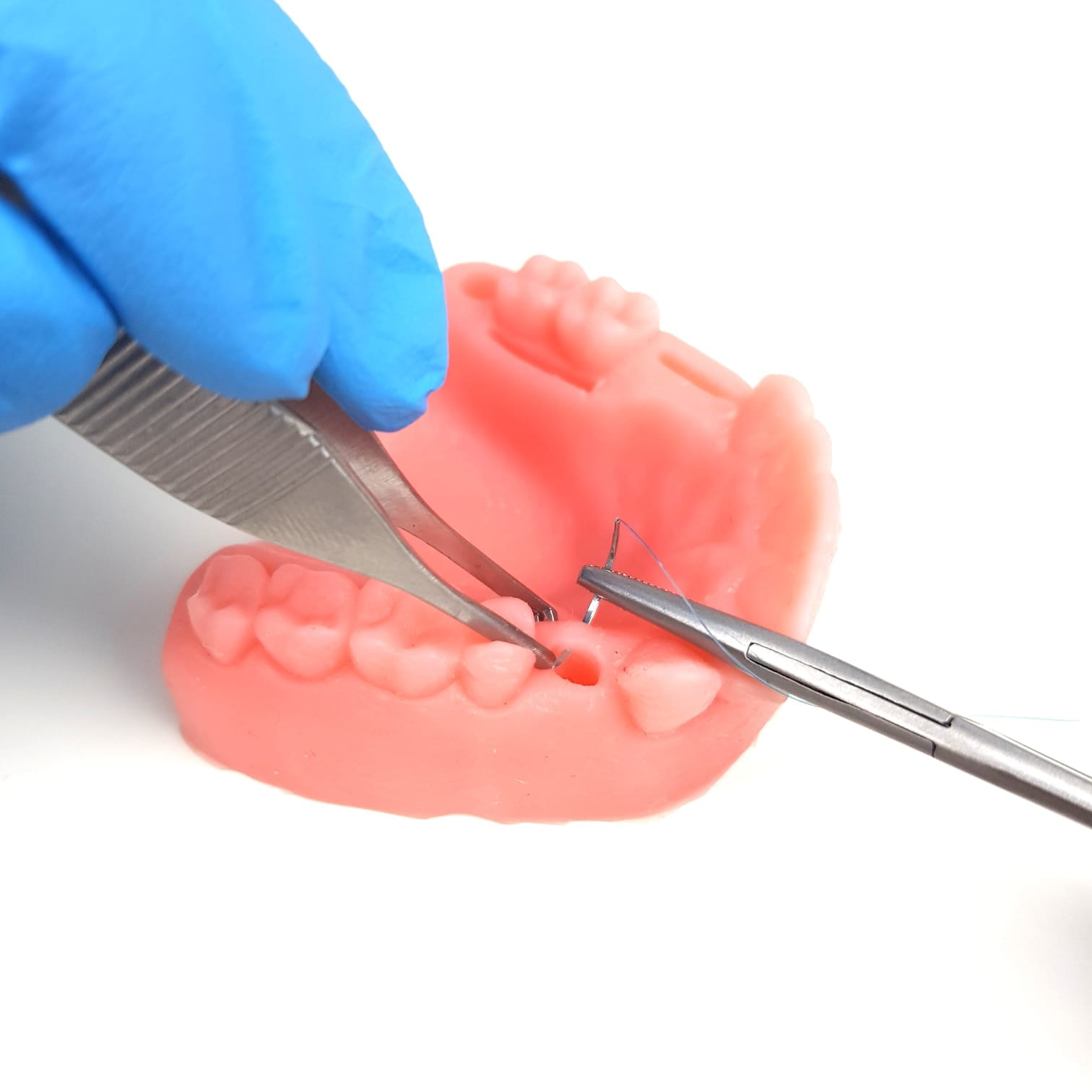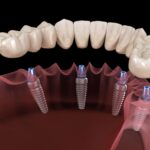In the field of dentistry, maintaining a safe and hygienic environment is crucial for both patient and practitioner safety. One indispensable tool in this effort is dental barrier film, often known as dental surface barriers or protective covers. These films are designed to protect surfaces from contamination during procedures, ensuring compliance with health regulations. This comprehensive guide explores various types of dental barrier films, their applications, and key factors to consider when selecting the best options for your practice. By understanding these elements, you can make informed decisions that enhance safety and efficiency in your dental operations.
What is Dental Barrier Film?
Dental barrier film is a thin, disposable plastic film with a self-adhesive backing designed to cover and protect dental equipment surfaces. Its primary function is to create a physical barrier that prevents germs, fluids, and other contaminants from reaching underlying surfaces, significantly reducing the risk of cross-infection during dental procedures. This protective measure is essential for maintaining a safe environment for both patients and dental professionals.
Key Features of Dental Barrier Film
Material Composition: Typically made from high-quality plastic materials, similar to those used in food service, ensuring durability while effectively preventing contamination.
Dual-Sided Design: The film features a shiny outer side that repels fluids effectively, while the low-residue adhesive on the back allows for secure attachment without leaving marks on surfaces.
Benefits of Using Dental Barrier Film
Infection Control: By providing a protective layer, dental barrier film plays a crucial role in infection control practices within dental settings. It is commonly used on high-touch surfaces like dental lights, chairs, and instruments to prevent cross-contamination after each patient visit.
Patient Comfort: Knowing that a protective barrier is in place can help patients feel more relaxed during procedures, minimizing discomfort and anxiety associated with potential contamination.
Ease of Use: The self-adhesive nature makes application quick and straightforward, allowing dental professionals to focus more on patient care rather than equipment preparation.
Versatility: Suitable for various dental instruments and surfaces, these films enhance overall hygiene practices in the clinic while reducing cleaning time for staff.
Variety of Options: Dental barrier films are available in multiple colors (commonly blue or clear) and standard sizes (typically 4″ x 6″), providing flexibility for different applications while ensuring they do not leave any residue upon removal.
Factors to Consider When Choosing Dental Barrier Film
Selecting the right dental barrier film is crucial for maintaining a safe and hygienic dental practice. Here are several key factors to consider:
Effectiveness and Quality
Reliable Protection: Prioritize films that provide dependable protection against contamination, effectively preventing germs and fluids from reaching surfaces.
Avoid Low-Quality Options: Steer clear of films that are prone to tearing or leaving adhesive residue, as these can compromise safety and cleanliness. High-quality films are essential to ensure optimal infection control.
Ease of Use
User-Friendly Features: Look for films that come with perforated sheets for effortless dispensing, enhancing workflow efficiency during procedures.
Convenient Dispenser Boxes: Consider well-designed dispenser boxes that facilitate quick access to the film, improving overall convenience in your practice.
Compatibility and Fit
Equipment Compatibility: Ensure that the selected film is compatible with your specific dental equipment. This compatibility is essential for effective use and safety.
Custom-Sized Options: Explore custom-sized films tailored for various surfaces in your office, ensuring optimal coverage and protection.
Durability and Tear Resistance
- Thicker Films: Opt for thicker films that offer enhanced tear resistance, capable of withstanding the rigors of dental procedures without compromising integrity.
Adhesive Quality
- Balanced Adhesive Properties: Choose films with adhesives that strike a balance between stickiness and ease of removal. This helps prevent damage to surfaces while ensuring secure application during use.
Additional Considerations
- Common Sizes and Colors: Dental barrier films typically come in sizes like 4″ x 6″ and are available in various colors such as clear, blue, and pink. Selecting the right size and color can enhance both functionality and aesthetics in your practice.
By considering these factors, along with ensuring high-quality materials are used, dental professionals can select barrier films that enhance safety, efficiency, and overall patient care in their practices.
Proper Application and Maintenance of Dental Barrier Film
To ensure the maximum effectiveness of dental barrier film in maintaining hygiene during procedures, it is crucial to adhere to the following best practices:
Surface Preparation: Thoroughly clean and dry all surfaces before applying the film. This step is essential for achieving optimal adhesion and preventing contamination.
Correct Sizing: Choose a barrier film that fully covers the intended area without stretching or distortion. This ensures comprehensive protection against contaminants.
Smooth Application: Apply the adhesive side of the film smoothly to eliminate any bubbles or wrinkles. This ensures a secure fit and enhances the film’s protective capabilities.
Timely Removal: After each patient, carefully remove the film without touching the soiled side. This practice is vital for preventing cross-contamination. Dispose of used films according to local regulations to maintain hygiene standards.
Broader Applications: Utilize barrier films not only on surfaces but also to cover instruments like tongue depressors and light handles, which are often difficult to clean thoroughly. Drape drawer pulls and light switches for quick sanitation.
Storage and Shelf Life: Store barrier films in a cool, dry environment to preserve their adhesive properties. Regularly inspect films for signs of degradation, such as discoloration or loss of stickiness, ensuring their effectiveness throughout their shelf life.
By following these guidelines, dental professionals can significantly enhance patient safety and maintain a sterile environment during procedures while demonstrating their commitment to infection control practices. For further details on best practices in infection control, refer to resources such as the CDC guidelines on infection control in dental settings.
Top Dental Barrier Film Brands and Products
Infection control is essential in dental practices to ensure patient safety and maintain a hygienic environment. Dental barrier films are crucial tools that help prevent cross-contamination by providing a protective layer on surfaces frequently touched during procedures. Several reputable brands offer high-quality dental barrier films designed to meet diverse needs:
MediWish Dental Barrier Film: Available in both blue and clear options, this film features a low-tack adhesive that minimizes residue on surfaces while ensuring easy application. Its perforated sheets allow for precise dispensing, making it user-friendly for dental professionals committed to patient safety.
PlastCare USA Barrier Film: This film is designed for quick application and enhances patient confidence in infection control measures. Made from high-quality materials, it provides reliable protection against contamination while being easy to apply and remove, ensuring a secure fit during procedures.
Penguin Health Dental Barrier Film: Offering a range of sizes and thicknesses tailored to specific procedural needs, this film emphasizes elasticity and chemical tolerance. Its versatile design makes it suitable for various applications within the dental practice, ensuring effective protection against cross-contamination.
By choosing the right dental barrier film, professionals can significantly bolster their infection control protocols, ensuring both patient safety and operational efficiency in their practices.
Conclusion
Dental barrier film is an indispensable tool for maintaining safety and hygiene in dental practices. By understanding its key features, benefits, and selection criteria, you can make informed decisions that prioritize infection control and patient well-being. Invest in high-quality products from trusted brands and adhere to proper application techniques to maximize their effectiveness. As advancements in infection control continue to evolve within the dental industry, staying informed will enable you to provide the highest standard of care for your patients.
By implementing these practices today, you can enhance both safety protocols and patient confidence in your practice’s commitment to health and hygiene.
High-quality dental barrier films are designed to leave minimal to no residue upon removal. If you experience significant adhesive residue, consider switching to a superior product.
Dental barrier films create a sterile, non-cytotoxic physical barrier that prevents fluids from reaching the surface below. Their alcohol-free composition makes them safe for use on irritated or damaged skin.
Barrier films are commonly available in clear/transparent, blue, and pink colors, with some brands offering additional options like black.
Many dental barrier films are manufactured in China, but it’s essential to choose products from reputable suppliers to ensure quality and reliability.











